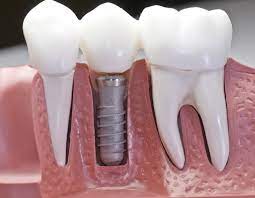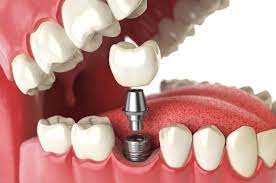
Family Dental Care

Family Dental Care

Missing teeth can affect more than just your smile — they can impact your confidence, speech, and ability to chew food properly. Fortunately, dental implants offer a long-lasting and natural-looking solution. If you’re considering this option, it’s essential to understand what dental implants are, how they work, and what to expect from the process.
Dental implants are artificial tooth roots made of titanium, a biocompatible material that integrates with the jawbone. These implants serve as a sturdy foundation for replacement teeth, such as crowns, bridges, or dentures. Unlike traditional dentures, dental implants are fixed in place, providing a more secure and comfortable fit.
Natural Appearance: Implants look and feel like natural teeth, enhancing your smile and facial structure.
Improved Function: They restore the ability to chew and speak clearly.
Durability: With proper care, dental implants can last a lifetime.
Bone Health: Implants help prevent bone loss by stimulating the jawbone, maintaining its strength and density.
Convenience: Unlike removable dentures, implants eliminate the need for adhesives and daily removal.

Consultation and Evaluation: Your dentist will assess your oral health, take X-rays, and determine if you’re a suitable candidate for implants.
Implant Placement: During a surgical procedure, the titanium implant is placed into the jawbone. Over the next few months, the bone naturally fuses with the implant, ensuring stability.
Abutment Attachment: Once the implant has integrated with the bone, a small connector called an abutment is attached to the implant. This piece holds the replacement tooth in place.
Crown Placement: Finally, a custom-made crown is secured onto the abutment, completing your new tooth. The crown is designed to match the color, shape, and size of your natural teeth.
Maintaining dental implants is similar to caring for natural teeth. Brush twice a day, floss daily, and visit your dentist regularly for check-ups and cleanings. Avoid habits like smoking and chewing on hard objects, as these can affect the longevity of your implants.
Most adults with good oral health are candidates for dental implants. However, factors like bone density, gum health, and overall medical history will be considered. If you have insufficient bone mass, bone grafting may be recommended to support the implant.
Dental implants are a reliable and effective way to replace missing teeth, offering both aesthetic and functional benefits. If you’re interested in restoring your smile, schedule a consultation with your dentist to explore whether dental implants are the right solution for you. With proper care, dental implants can enhance your quality of life and provide a confident, healthy smile for years to come.